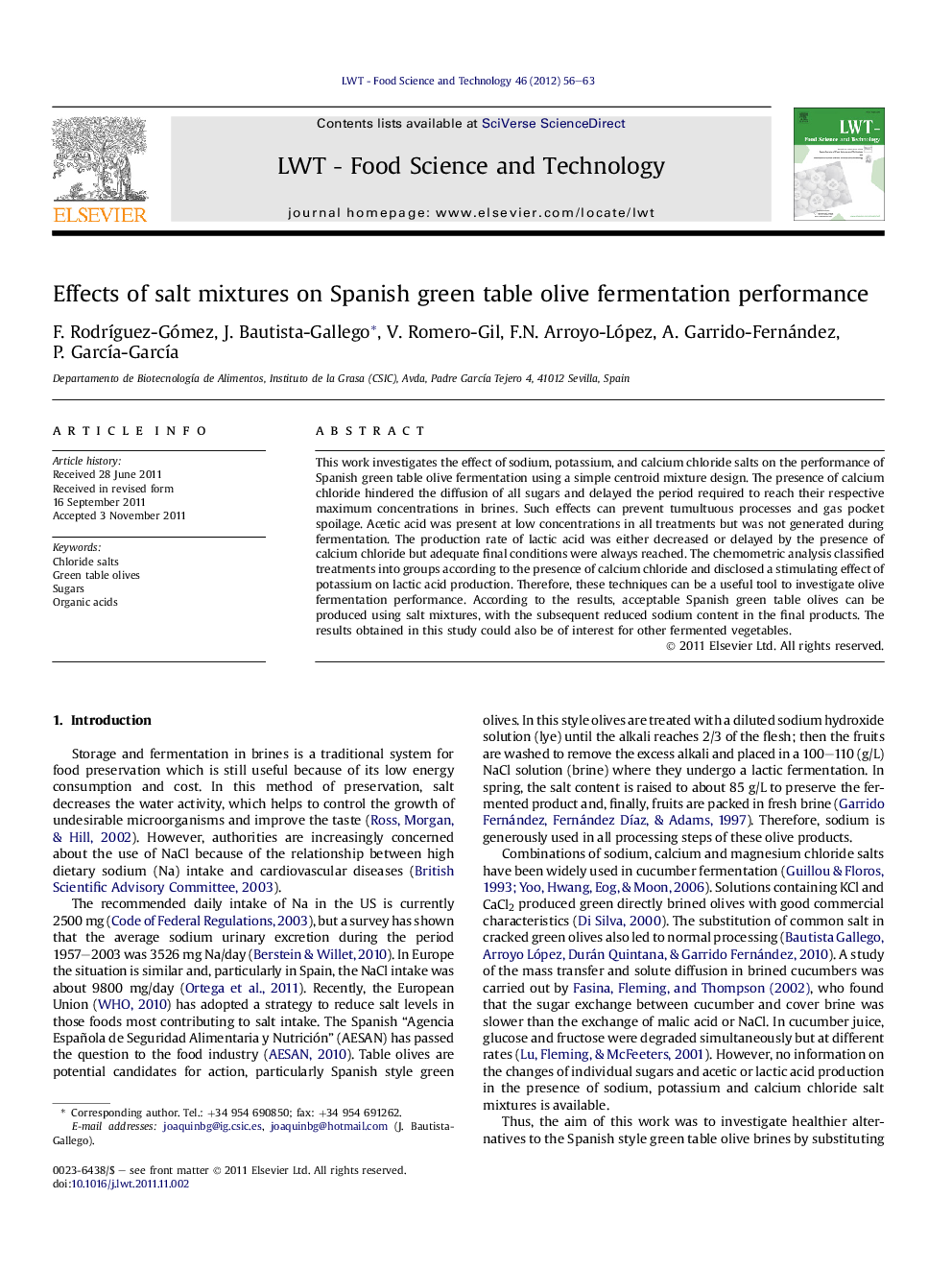| Article ID | Journal | Published Year | Pages | File Type |
|---|---|---|---|---|
| 6405346 | LWT - Food Science and Technology | 2012 | 8 Pages |
This work investigates the effect of sodium, potassium, and calcium chloride salts on the performance of Spanish green table olive fermentation using a simple centroid mixture design. The presence of calcium chloride hindered the diffusion of all sugars and delayed the period required to reach their respective maximum concentrations in brines. Such effects can prevent tumultuous processes and gas pocket spoilage. Acetic acid was present at low concentrations in all treatments but was not generated during fermentation. The production rate of lactic acid was either decreased or delayed by the presence of calcium chloride but adequate final conditions were always reached. The chemometric analysis classified treatments into groups according to the presence of calcium chloride and disclosed a stimulating effect of potassium on lactic acid production. Therefore, these techniques can be a useful tool to investigate olive fermentation performance. According to the results, acceptable Spanish green table olives can be produced using salt mixtures, with the subsequent reduced sodium content in the final products. The results obtained in this study could also be of interest for other fermented vegetables.
⺠Calcium chloride slowed down the diffusion of sugars into brines. ⺠Lactic acid production was delayed by the presence of calcium chloride. ⺠The addition of K stimulated the Lactobacillus pentosus growth and lactic acid production. ⺠The chemometric analysis classified the runs according to the presence of CaCl2. ⺠The PCA grouped the variables into two Factors which included sugars and acids.
